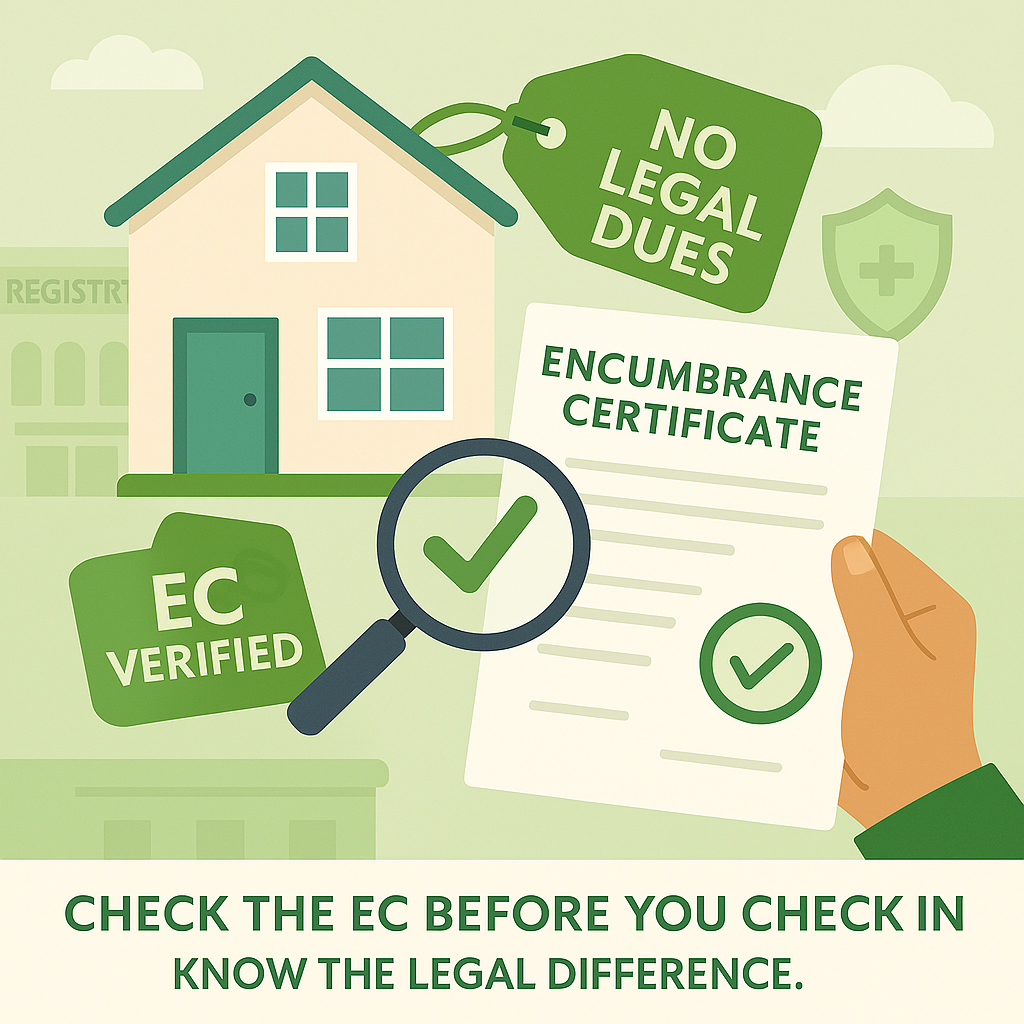Understanding Encumbrance Certificate (EC): A Must for Buyers

An Encumbrance Certificate (EC) is your proof that a property is free from legal or financial liabilities—like loans, mortgages, or disputes.
What Is It?
-
A legal document that records all registered transactions related to a property
-
Confirms whether the property has any outstanding dues, claims, or mortgages
Why It Matters:
-
Ensures Clear Title: Confirms the seller has full rights to sell
-
Protects Buyers: Avoids hidden liabilities or legal surprises
-
Required for Loans: Banks demand EC before approving home loans
-
Essential for Registration: Needed during property transfer or mutation
How to Get It:
-
Visit the Sub-Registrar’s Office where the property is registered
-
Or apply online via your state’s land records portal (available in Telangana, Tamil Nadu, Kerala, etc.)
-
Submit property details + period of search (usually 13–30 years)
-
Receive EC in Form 15 (if encumbrances exist) or Form 16 (if none)
- Lakshadweep
- Delhi
- Puducherry
- PROPIINN
- Arunchal Pradesh
- Assam
- Bihar
- Chhattisgarh
- Goa
- Gujarat
- Haryana
- Himachal Pradesh
- Jharkhand
- Karnataka
- Kerala
- Maharashtra
- Madhya Pradesh
- Manipur
- Meghalaya
- Mizoram
- Nagaland
- Odisha
- Punjab
- Rajasthan
- Sikkim
- Tamil Nadu
- Tripura
- Telangana | Andhra pradesh
- Pulse
- Uttar Pradesh
- Uttarakhand
- West Bengal
- Andaman and Nicobar Islands
- Chandigarh
- Dadra and Nagar Haveli and Daman and Diu
- Jammu and Kashmir
- Ladakh



